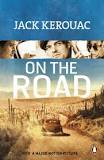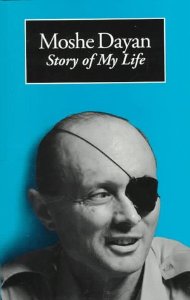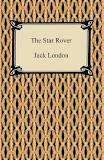 Your book articles have certainly brought back old memories Billy Joe and it would be great to hear of a few others commenting such as Charlie did given that there was an abundance of books passed through the jail and compounds about ‘everything under the sun’. I have to say, I can’t argue with your recollections of you having lent many a book and never had them returned but I hope you are not including me in that category! Just think, had you have operated a more organised lending service you could have made a fortune in people owing fines for late returns. Well I finally got round to writing this last week and have to start (reluctantly) by agreeing with you about Tarantula. However, I should add that since it was written in the mid- sixties when the music drug scene was at its height I can forgive Dylan with writing only what can be described as a book about chaos. That said, I have read it six times and currently have two different copies. As a genre, the book is hard to define but is filled with literary references to fictional and factual characters, such as Rain Man and President Plump or Ezra Pound and T. S. Eliot which always intrigued me and sent me on searches to find out more about what I’d read. In an era before the internet, books (and for me the music of Dylan) was our font of learning which opened a new world inhabited by the likes of Wood Gutherie’s ‘Bound for Glory’ and Kerouac’s ‘On the Road’. Likewise, it was music that directed me to a lot of books I would otherwise probably not have heard of or never have read, such as, William Blake’s ‘Songs of Innocence and Songs of Experience’ very influential in the music of Van Morrison and Arthur Rimbaud’s ‘Je est une autre’. A lot of the books you mentioned I now recall reading particularly those whose topics were of common interest to us all. I’m thinking about the many Vietnam books (I bought Herr’s Dispatches last year), the prison ones of Jimmy Boyle (I still have both of those) and the boxing biographies with ‘The Sixteenth Round’ having a special interest for me for the connection between Dylan and Carter. From the vast range of books you recall Billy Joe we could never be accused of limiting our reading, (even though yours was an acquired taste), but it’s hard to ignore the common interest we all had in certain topics such as you have mentioned about
Your book articles have certainly brought back old memories Billy Joe and it would be great to hear of a few others commenting such as Charlie did given that there was an abundance of books passed through the jail and compounds about ‘everything under the sun’. I have to say, I can’t argue with your recollections of you having lent many a book and never had them returned but I hope you are not including me in that category! Just think, had you have operated a more organised lending service you could have made a fortune in people owing fines for late returns. Well I finally got round to writing this last week and have to start (reluctantly) by agreeing with you about Tarantula. However, I should add that since it was written in the mid- sixties when the music drug scene was at its height I can forgive Dylan with writing only what can be described as a book about chaos. That said, I have read it six times and currently have two different copies. As a genre, the book is hard to define but is filled with literary references to fictional and factual characters, such as Rain Man and President Plump or Ezra Pound and T. S. Eliot which always intrigued me and sent me on searches to find out more about what I’d read. In an era before the internet, books (and for me the music of Dylan) was our font of learning which opened a new world inhabited by the likes of Wood Gutherie’s ‘Bound for Glory’ and Kerouac’s ‘On the Road’. Likewise, it was music that directed me to a lot of books I would otherwise probably not have heard of or never have read, such as, William Blake’s ‘Songs of Innocence and Songs of Experience’ very influential in the music of Van Morrison and Arthur Rimbaud’s ‘Je est une autre’. A lot of the books you mentioned I now recall reading particularly those whose topics were of common interest to us all. I’m thinking about the many Vietnam books (I bought Herr’s Dispatches last year), the prison ones of Jimmy Boyle (I still have both of those) and the boxing biographies with ‘The Sixteenth Round’ having a special interest for me for the connection between Dylan and Carter. From the vast range of books you recall Billy Joe we could never be accused of limiting our reading, (even though yours was an acquired taste), but it’s hard to ignore the common interest we all had in certain topics such as you have mentioned about  the Mossad as Charlie did about the general history of Israel. In fact, the fascination we all seemed to have with The Six Day War meant many a book on the topic was well circulated and I recall reading Moshe Dayan’s ‘Story of my life’ in which it was well documented if memory serves me well. My dad was an avid reader and used to pass them in to me when he was finished. In the ‘First Blood’ style, you may recall one he sent me called ‘Open Season’ by David Osborn which was adapted also into a film with William Holden and Peter Fonda. A fascinating book he also got me was by Daniel P. Mannix called ‘Those about to die’. It was a factual account of the Roman arena and the gladiators which gave a chilling description of the Roman’s thirst for blood sports. In fact, it’s a collector’s item now and he paid seventy quid a few years back for a first copy. It inspired me to learn more about ancient history and I sat an ‘O’ Level in the compounds on the subject. A number of books with a connection to incarceration I found interesting and memorable.
the Mossad as Charlie did about the general history of Israel. In fact, the fascination we all seemed to have with The Six Day War meant many a book on the topic was well circulated and I recall reading Moshe Dayan’s ‘Story of my life’ in which it was well documented if memory serves me well. My dad was an avid reader and used to pass them in to me when he was finished. In the ‘First Blood’ style, you may recall one he sent me called ‘Open Season’ by David Osborn which was adapted also into a film with William Holden and Peter Fonda. A fascinating book he also got me was by Daniel P. Mannix called ‘Those about to die’. It was a factual account of the Roman arena and the gladiators which gave a chilling description of the Roman’s thirst for blood sports. In fact, it’s a collector’s item now and he paid seventy quid a few years back for a first copy. It inspired me to learn more about ancient history and I sat an ‘O’ Level in the compounds on the subject. A number of books with a connection to incarceration I found interesting and memorable.  A novel by Jack London springs to mind – ‘The star rover’ was a work of fiction about a guy on death row but it still intrigues me how I’m able to recall the opening lines when the author writes, “All my life I had an awareness of other times and places. I have been aware of other persons in me”. I think this particularly resonated with my own experiences which ultimately led me to incarceration and was in fact a significant feature in me wanting to record the narratives of other prisoners, which you know I did at length. In fact, this is also true of the previous work of Rimbaud which I mentioned as the French title means ‘When I is another’. This fixation on prison is also found from a different point of view in the Albert Pierrepoint biography. Britain’s infamous hangman, I have since learned, ironically was opposed to capital punishment. More fascination with death and murder nudges me to Bugliosi’s ‘Helter Skelter’ or ‘In Cold Blood’ by Truman Capote. Again, this is an example of literature which has ‘stuck’ with me as I can also recall in the inscription in Capote’s inside cover, two lines of which reads “Freres humains qui apres nous vivez, N’ayez les cuers centre nous endurcis”. Now I’m not well versed in French but again I have been directed through books to want to know more and this was from Francois Villon, the 16th Century poet who wrote this in prison before being executed, and translates into “Human brothers who live after us, Do not have your hearts hardened against us”. How relevant is that today?
A novel by Jack London springs to mind – ‘The star rover’ was a work of fiction about a guy on death row but it still intrigues me how I’m able to recall the opening lines when the author writes, “All my life I had an awareness of other times and places. I have been aware of other persons in me”. I think this particularly resonated with my own experiences which ultimately led me to incarceration and was in fact a significant feature in me wanting to record the narratives of other prisoners, which you know I did at length. In fact, this is also true of the previous work of Rimbaud which I mentioned as the French title means ‘When I is another’. This fixation on prison is also found from a different point of view in the Albert Pierrepoint biography. Britain’s infamous hangman, I have since learned, ironically was opposed to capital punishment. More fascination with death and murder nudges me to Bugliosi’s ‘Helter Skelter’ or ‘In Cold Blood’ by Truman Capote. Again, this is an example of literature which has ‘stuck’ with me as I can also recall in the inscription in Capote’s inside cover, two lines of which reads “Freres humains qui apres nous vivez, N’ayez les cuers centre nous endurcis”. Now I’m not well versed in French but again I have been directed through books to want to know more and this was from Francois Villon, the 16th Century poet who wrote this in prison before being executed, and translates into “Human brothers who live after us, Do not have your hearts hardened against us”. How relevant is that today?
- May 2019
- March 2019
- February 2019
- January 2019
- December 2018
- November 2018
- October 2018
- September 2018
- August 2018
- May 2018
- February 2018
- January 2018
- December 2017
- September 2017
- July 2017
- June 2017
- May 2017
- December 2016
- November 2016
- October 2016
- July 2016
- June 2016
- May 2016
- April 2016
- March 2016
- February 2016
- January 2016
- December 2015
- November 2015
- October 2015
- September 2015
- August 2015
- July 2015
- June 2015
- May 2015
- April 2015
- March 2015
- February 2015
- January 2015
- December 2014
- November 2014
- October 2014
- September 2014
- August 2014
- July 2014
- June 2014
- May 2014
- April 2014
- March 2014
- January 2014
- December 2013
- November 2013
- October 2013
- September 2013
- August 2013
- July 2013
- June 2013
- May 2013
- April 2013
- March 2013
- February 2013
- January 2013
- December 2012
- November 2012
- October 2012
- September 2012
- August 2012
- July 2012
- June 2012
- May 2012
- April 2012
- March 2012
- New collective cultural group representing 13 loyalist bonfires launched in east Belfast
- Hillsbourough Drive 2016: Chris Thackaberry
- Supreme Court decision on non-jury trials for British soldiers will have a huge impact on legacy – A response to solicitor Darragh Mackin
- Why the toxic issue of legacy will have caused many young unionists to follow their most basic instincts and cheer Karen Bradley’s comments to the rafters
- Outreach Clinic
- FORGOTTEN VICTIMS: Is it ‘Time for Truth’ from Sinn Fein for the family of Ambulance worker Robert Shields, murdered by IRA terrorists in 1980.
- And here is the Weather Forecast: Primo.
- An Ulster Education: Chris Thackaberry
- Finucane campaign highlights the hypocrisy at the heart of republicanism’s legacy propaganda
- Irish Journalism Finally Wakes Up: The GFA Says Nothing About Hard Or Soft Border







One Response to The Books Have It-3 —by William